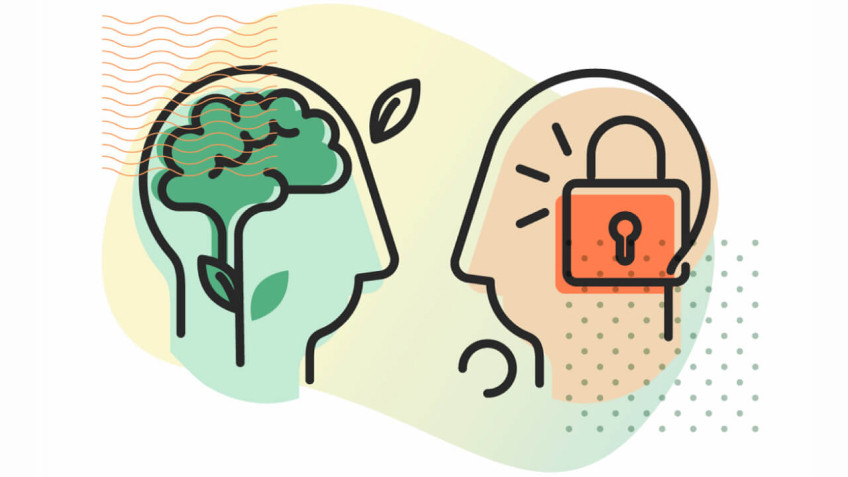We often think that we can do whatever we desire when we grow old as a child. But is this possible for children without a growth mindset? Most children are under pressure to perform well without sparing time developing a growth mindset. Children must have a growth mindset in their early stages. I have seen many people commenting “Boys are naturally good at maths” and other statements that negatively affect and damage children’s mental growth.
Every child is born different and is intelligent from birth, but they perceive things differently from each other. The ways that can work will not work with you, but it does not mean that you will give up on your knowledge. It is useless to differentiate children depending upon their “Inherent Intelligence.” As a child, I was curious to learn things and understand their concept. This is not only with me, but children are generally curious from birth and want to find answers to their curiosity. Every young child has the right understanding of the meaning of a growth mindset.
What is a Growth Mindset?
Have you ever thought of giving up on exams because you believe that you can not solve a question? Most of us have, but that is not the right thing to do. Instead of giving up, most of the students work hard to solve the question and try to overcome the obstacles. This makes them different from other children. These children have a mind growth feature that helps them to understand the situation and helps them to take ways to overcome hardships and learn new things.
Every student can develop a growth mindset that can help them to overcome challenges in life and face new areas of learning. Also, they can develop the necessary skills of persistence by developing a growth mindset.
As I stated earlier, people believe that boys are naturally good in maths, but they do not think that girls can be good too when it comes to girls. As a girl, one should believe in themselves and try to overcome the hardships of mathematics and learn the subject. This way, they will realize that learning mathematics has nothing to do with their gender.
Importance of Growth Mindset
Mind growth is as important as knowledge. My parents encouraged me to develop a growing mind to learn new things. But most educators can also help the children to learn the importance of a growth mindset. With Ekal Shiksha, parents can give their children a one-to-one teacher who can help them to understand and encourage them to develop a growth mindset. At an early age, one can make the most of a growing mind by understanding different concepts of the world. They can understand the importance of effort and praise. Parents and educators can help the children by praising them for tackling hardships. This will help them to grow more in life in a positive way.
I have seen many children find answers to their curiosity, but after some time, most of them start giving up because of the hardships, but most of them try to overcome the hardships to learn new things. This is where the difference in children is noticeable. The children who give up have a fixed mindset, whereas those who want to learn new things and overcome obstacles have a growth mindset or mind growth tendency. But what is the difference between a fixed mindset and a growth mindset?
Growth Mindset Vs. Fixed Mindset
Fixed mindset and growth mindset are two different ways in which a child can shape its skills, habits, and life. The way we think about ourselves affects our habits and intellectual capacities, the same in children. As a child, if they start thinking negatively about their skills, their skills will degrade with time, but at the same time, if they think that they can make new changes with their skills, they can achieve it at some point.
A growth mindset plays an essential role in learning as it helps one to believe in one’s intellectuals and talents. Educators should promote a growth mindset and encourage the children for a positive outlook on the world. When I was a child, I learned that with a mind growth tendency, I have seen my IQ develop over time. Also, I started embracing hardships at a young age. Children believe in efforts and practices to achieve their goals and look at other people as a source of inspiration with a mind growth tendency.
Children with a fixed mindset believe that the intellectuals and skills are fixed. If children start to believe that they are not good at something, they will wholeheartedly believe that they will never be good at it. These children believe that facing hardships can bring them failures and try to avoid them. They also believe that efforts and practices are a waste of time as the skills and intellects are fixed for them. They think that temporary setbacks are permanent failures. When they get feedback from their peers and acquaintances, they see it as criticism and feel attacked and ignore their words.
As a child, I had always embraced the growth mindset instead of a fixed mindset because the growth mindset helped me to embrace my flaws and mistakes and made me realize that my features can be a growth opportunity for me. It helped in feeling embraced for reaching the goals, and setbacks helped in the learning process to reach my goals. But the children with a fixed mindset see failures as shameful things and give up easily. They also try to hide their flaws and mistakes as they feel ashamed about them. They are always unmotivated, which stops them from reaching their goals.
It depends upon the children what they want to choose. The choice between a fixed mindset and a growth mindset can affect them according to their choice.




